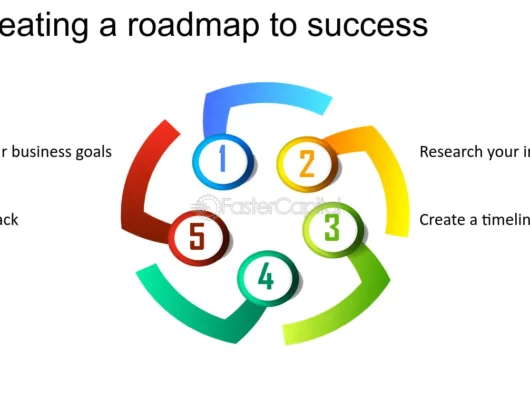In today’s digital age, social media has become essential for small businesses to reach their target audience. However, without a proper strategy and understanding of the dos and don’ts of social media marketing, it can be easy to fall into common pitfalls.
In this blog post, we will dive into some essential tips and tricks that every small business owner should know to effectively leverage the power of social media and grow their brand online. So sit back, grab a cup of coffee, and get ready to become a pro at social media marketing!
Introduction: Benefits of Social Media for Small Businesses
Small businesses can benefit from social media in many ways. The most obvious benefit is that it provides a low-cost way to reach potential customers. In addition, social media can be used to build relationships with customers and create a community around your brand.
Another benefit of social media for small businesses is that it can help you level the playing field with larger companies. Small businesses often need more resources to compete with big businesses regarding traditional marketing channels like television or print ads. However, with social media, you can reach your target audience with little money.
Social media can be a great way to get feedback from customers and learn about what they want. By monitoring social media, you can understand what people say about your brand and what products or services they want to see from you. This information can be invaluable in helping you shape your business strategy and make decisions about product development or marketing campaigns.
Finally, social media can be an effective tool for building relationships with influencers in your industry. You can use social media to make connections and build relationships with people who can help you promote your brand or provide valuable insights that can help you grow your business.
In conclusion, social media offers many benefits for small businesses. From lowering marketing costs to learning more about your customers and building relationships with influencers, social media is a powerful tool no small business should overlook.
Dos of Social Media Marketing
1. DO post regularly, but only spam your followers with a few daily posts. A few times a day is fine, but anything more than that is just overkill.
2. DO use hashtags to help get your content seen by more people, but use only a few, or else it will look spammy. 1-2 hashtags per post are plenty.
3. DO interact with other users on social media, but don’t come across as pushy or sales. Be friendly and engage in conversations without being too “sales-y” about it.
4. DO take advantage of social media ads, but do just what is necessary, or you’ll end up annoying your followers with too many ads. A few strategic ads here and there are fine, but stay moderate.
5. DO promote your content on social media, but don’t do it to the point of being obnoxious about it. A little self-promotion is fine, but don’t go wild with it, or people will start tuning you out.
– Create a Strategy
The most important thing you can do regarding social media marketing for your small business is to create a strategy. This doesn’t have to be a complicated document, but it should outline your goals and objectives for using social media, your target audience, and what kind of content you’ll be sharing. Once you have a strategy, you can more easily measure your results and adjust as needed.
– Use Visual Content
It’s no secret that visual content is one of the most effective ways to capture attention and engagement on social media. Studies have shown that posts with images are more likely to be shared and engaged with than those without.
But as a small business, you might wonder how you can create visuals that stand out from the crowd and get noticed by your target audience. Here are a few tips:
1. Use high-quality images: This should be a no-brainer but worth repeating. Your images should be clear, sharp, and visually appealing. Avoid blurry or low-resolution photos at all costs.
2. Be creative: Think outside the box regarding your visuals. Get creative with your images, infographics, videos, etc. The sky’s the limit!
3. Use relevant hashtags: Hashtags are a great way to ensure your content is seen by people interested in what you’re posting about. Please research to find the best hashtags for your industry and use them accordingly.
4. Engage with other users: Social media is all about engagement! Ensure you like, comment, and share other people’s content and your own. This will help get your name out there and build relationships with other users.
– Research Competitors
When you research your competitors, you should keep a few things in mind. First, stay caught up in what they’re doing. It’s important to remember that your business is unique and that you should be focusing on what works for you.
Second, feel free to contact your competitors and ask them questions. This can be a great way to gain insights into their business and social media marketing strategy.
Don’t forget to use social media to your advantage. Use it to connect with customers, potential customers, and other businesses in your industry.
– Engage with Followers
Small businesses need to engage with followers on social media to create a connection with potential and current customers. When you engage with followers, you build relationships and show that you care about your customers.
Here are some dos and don’ts of social media engagement for small businesses:
Do:
-Respond to comments and questions promptly
-like and comment on other posts to get your name out there
-Post content that is interesting and engaging
-Run contests and giveaways to encourage interaction
Don’t:
-Ignore comments or questions from customers
-Spam other people’s posts with your links
-Post uninteresting content
-Be pushy or salesy in your interactions
Don’ts of Social Media Marketing
There are a few things small businesses should avoid doing when it comes to social media marketing. Here are some of the most common mistakes:
1. Posting too much content: Ensure your followers have enough posts. Stick to a regular posting schedule and mix up the types of content you share to keep things interesting.
2. Ignoring comments and messages: Respond to any comments or questions your followers leave. Ignoring them will make you seem uninterested in engaging with your audience.
3. Posting irrelevant content: Keep your posts relevant to your business and industry. Your followers will appreciate seeing content that is interesting and useful to them.
4. Not using hashtags: Hashtags can be a great way to reach new followers and promote your content. Use relevant, popular hashtags in your posts to get more eyes on your content.
5. Posting low-quality photos: In today’s visual world, photographs are important! Post high-quality images properly cropped and sized for each social media platform.
– Don’t Post Too Often or Too Little
Post sparingly or too little if you want to keep your social media followers engaged. Find a happy medium that works for your business.
If you post too often, you risk overwhelming your followers and driving them away. On the other hand, if you post more often, you will be top of mind when they’re ready to make a purchase.
The key is to find a balance that works for your business. Experiment with different frequencies and see what gets the best results.
– Don’t Ignore Negative Comments/Feedback
Getting caught up in the positive feedback you receive on social media and ignoring the negative comments can be easy. However, it’s important to address negative feedback promptly and professionally. Ignoring negative feedback will only make the situation worse and damage your reputation.
Here are some tips for handling negative comments and feedback:
– Respond quickly. The sooner you respond, the better.
– Be professional. Address the issue without getting defensive or attacking the person who left the comment.
– Thank the person for their feedback. This shows that you’re open to constructive criticism.
– Offer a solution. If there’s a way to fix the problem, let the person know what you will do to resolve it.
– Keep an open mind. Not all feedback will be positive but try to learn from it nonetheless.
– Don’t Fall into the
It can be easy for small businesses to get caught up in the latest social media trends and try to do too much at once. This can quickly overwhelm and cause frustration and eventually cause them to give up on social media altogether.
To avoid this, it’s important to focus on a few key platforms that will work best for your business and stick to a consistent posting schedule. Trying to be everywhere at once is not sustainable and will only lead to burnout.






